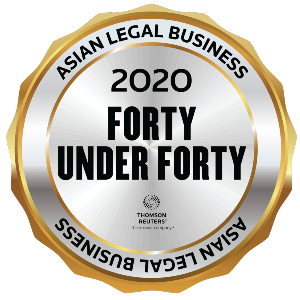Business Partnership Agreement in Malaysia
Navigate the complexities of partnership agreements in Malaysia and confidently secure your business' future.
Engage our law firm for tailored legal solutions.
Business Partnership Agreement in Malaysia
A well-structured partnership agreement is the cornerstone of successful business collaboration in Malaysia. Whether you’re a new business entering a partnership or an existing one seeking to formalize your arrangement, the legal team in our corporate law firm is here to guide you through the process and provide you with tailored legal solutions.
What is a Partnership Agreement?
A partnership agreement is a legally binding document that outlines the terms and conditions governing the relationship between business partners. It serves as a crucial roadmap, detailing each partner’s rights, responsibilities, and obligations, as well as the overall goals and objectives of the partnership.

The Importance of an Agreement for Partnerships
While not mandatory, it’s highly recommended in Malaysia to establish a formal agreement for partnerships. Such an agreement protects your business interests and provides clarity in the event of disputes or changes in the partnership structure.
Without a formal agreement, every partner holds an equal position and is responsible for dividing the company’s profits and equally assuming losses.
Choosing the Right Law Firm and Partnership Agreement Lawyers
Crafting a robust partnership agreement requires careful consideration of various elements. Consult our legal experts at the Lee & Poh Partnership law firm on a partnership agreement. We will walk you through the process, ensuring your agreement is tailored to your needs and compliant with Malaysian laws.
We’ll also help you draft an agreement covering essential aspects such as profit-sharing,
FAQs
What should be included in a partnership agreement?
Key components include the roles and responsibilities of partners, profit-sharing arrangements, decision-making processes, dispute-resolution mechanisms, and more.
Is a partnership a legal entity in Malaysia?
Various business structures operate within Malaysia, with partnerships among the commonly chosen options. Partnerships in Malaysia fall under the regulatory oversight of the Companies Commission of Malaysia, known as Suruhanjaya Syarikat Malaysia (SSM), and are governed by the Registration of Businesses Act 1956.
How do I choose the right lawyers for my partnership agreement?
Look for experienced solicitors with expertise in business law and a track record of successful partnership agreements. Lee & Poh Partnership can provide comprehensive legal guidance, ensuring your partnership agreement is tailored to your business needs and aligned with Malaysian regulations.
What happens when there is no partnership agreement?
Without a formal written business agreement, the practical aspects of partnership operations, such as disbursing salaries, can become challenging. Without such an agreement, partners might be obliged to postpone these activities until the close of each fiscal year, at which point they would evenly distribute the partnership’s profits and losses.
Business partnership agreements can potentially restrict liability for individual partners when used with additional legal entity documents.
What is a silent partnership agreement?
A silent partnership agreement enables individuals to partake in a business’s profits or losses without actively managing its daily operations. It offers an avenue to engage in business without assuming a prominent public role. You can become a silent partner or join a collective of silent partners.
Do partnerships need to be audited in Malaysia?
In Malaysia, businesses operating as sole proprietors or partnerships are not legally obliged to undergo annual financial statement audits.
How is partnership taxed in Malaysia?
The earnings are attributed to individual partners rather than the partnership itself, making the partners personally responsible for their profits according to personal income tax regulations. Partners are subject to taxation on their assessable income, with tax rates ranging from 2% to 26% following the deduction of applicable tax reliefs.













